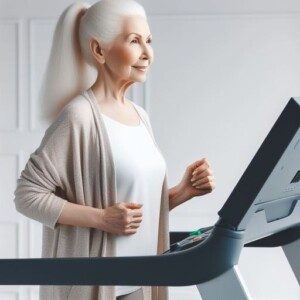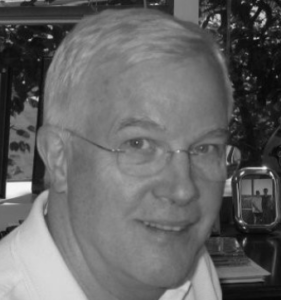
An elderly person who’s been diagnosed with chronic heart failure absolutely must do aerobic exercise.
Doctors warn that the absence of cardio exercise is bad for the patient’s body.
If you’re over age 60 and have been diagnosed with heart failure, there is no better time to do aerobic exercise.
There’s NO such thing as a heart failure patient being too old to benefit from cardio exercise.
A study beats down any doctor’s recommendation that aerobic exercise is useless once a heart failure patient reaches a certain age.
The study (Gielen et al) concludes that cardiovascular-type exercise counteracts breakdown of cardiac muscle, reduces inflammation and increases strength—when these problems are caused by heart failure and old age.
Why should heart failure patients be exempt from the amazing benefits of exercise?
The paper points out that many doctors and insurance companies still believe that aerobic-type exercise is of no help in old age.
Though the paper was published in 2012 (Circulation), many cardiologists and primary care physicians continue to feel this way — or at least, barely mention exercise during patient routine visits.
Exercise Benefits
“Formal exercise testing in patients with heart failure is a powerful predictor of outcomes, with higher exercise capacity associated with lower long-term mortality rates,” says Roger Mills, MD, cardiologist and former professor of medicine, University of Florida, and author of “240 Beats per Minute. Life with an Unruly Heart.”
Dr. Mills explains, “Patients with both types of heart failure seem to respond to exercise training, although the data for HFrEF patients are much more extensive.”
How the Study Determined that Elderly Heart Failure Patients Should Do Cardio Exercise
- The study involved taking leg muscle biopsies before and after the four-week study course.
- The exercise involved 20 minute aerobic sessions five days a week, plus an hour-long group session.
- The subjects were both healthy and had heart failure, and some did the aerobics and some did not.
- The heart failure patients who did the aerobic exercise had a 25 to 27 percent improvement in peak oxygen uptake.
Heart failure but never exercised? How to get started.

Freepik.com
“If you have or someone you know has heart failure, how should you start exercising?” says Dr. Mills.
“By far the safest approach is to ask your doctor for a referral to a cardiac rehabilitation program, where patients start to exercise with careful supervision and learn to progress to greater independence over a couple of months.”
If the patient’s doctor has not spent much time talking about exercise, it may be because the medical organization the doctor works for has a separate department and specialists in cardiac rehab. Ask for that referral.
“Learning to warm up and cool down properly is critical to exercising safely,” continues Dr. Mills.
An elderly person who can barely walk for five minutes at a slow pace before tiring out still needs a warm-up.
Such a warm-up could be nonstop walking for just one minute, or marching in place for 30 seconds for a few sets.
“But the days of ‘Oh, you mustn’t do that!’ are over,” says Dr. Mills.
 Dr. Mills is the former medical director of the heart failure and heart transplant service at the University of Florida, was a staff cardiologist at The Cleveland Clinic and has authored over 100 peer-reviewed publications.
Dr. Mills is the former medical director of the heart failure and heart transplant service at the University of Florida, was a staff cardiologist at The Cleveland Clinic and has authored over 100 peer-reviewed publications.
 Lorra Garrick has been covering medical, fitness and cybersecurity topics for many years, having written thousands of articles for print magazines and websites, including as a ghostwriter. She’s also a former ACE-certified personal trainer.
Lorra Garrick has been covering medical, fitness and cybersecurity topics for many years, having written thousands of articles for print magazines and websites, including as a ghostwriter. She’s also a former ACE-certified personal trainer.
.









































